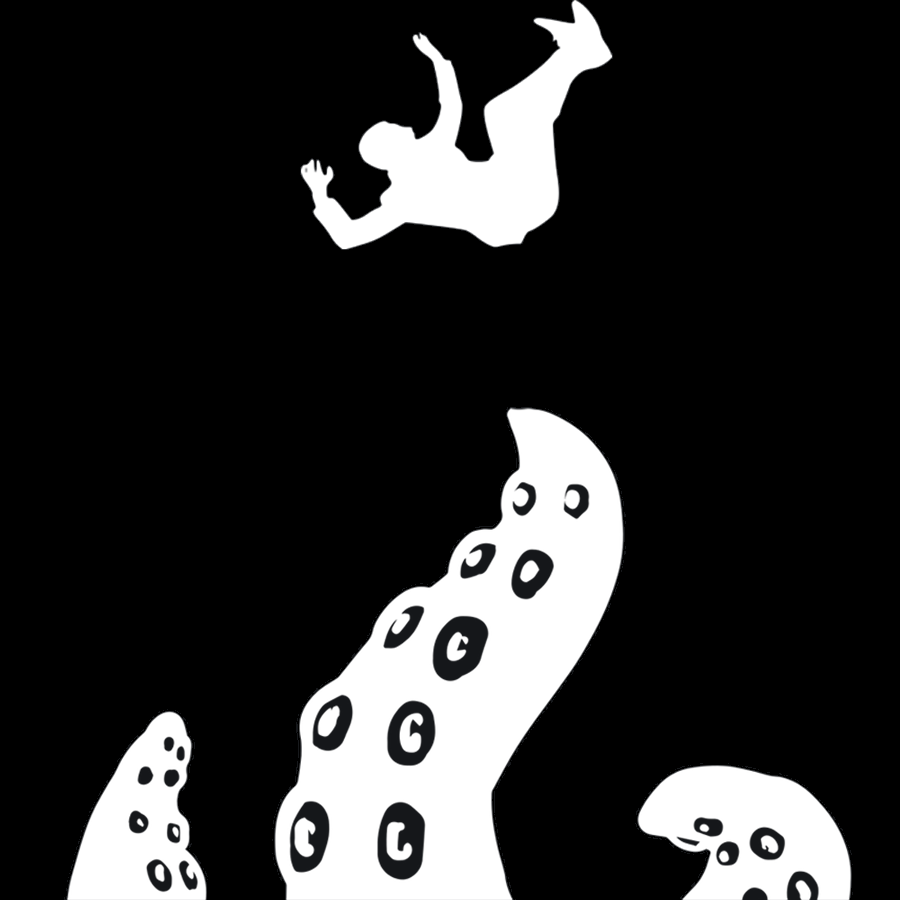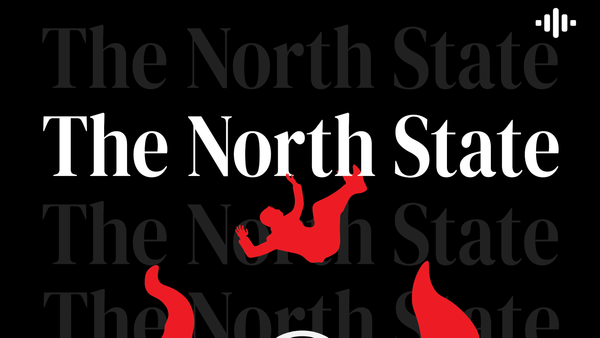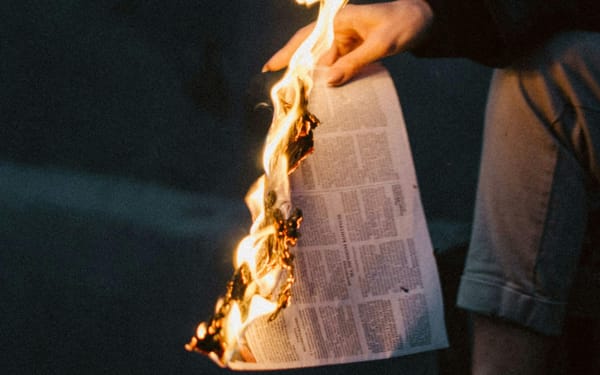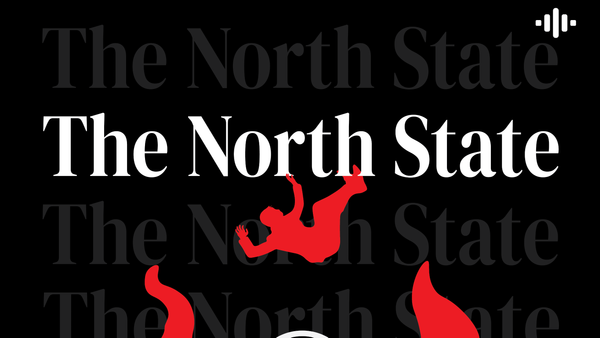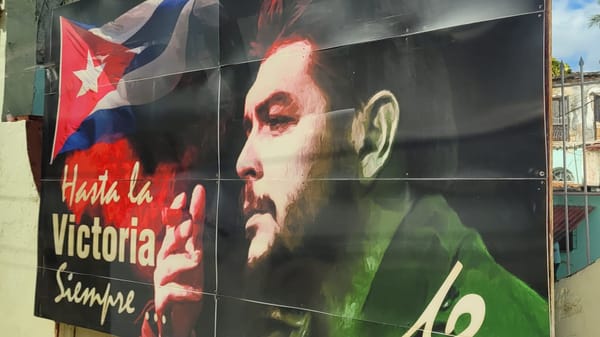We're Not Prepared to Handle Targeting of Journalists
Journalists are being targeted by police, organized crime, online hate mobs and politicians with little protection
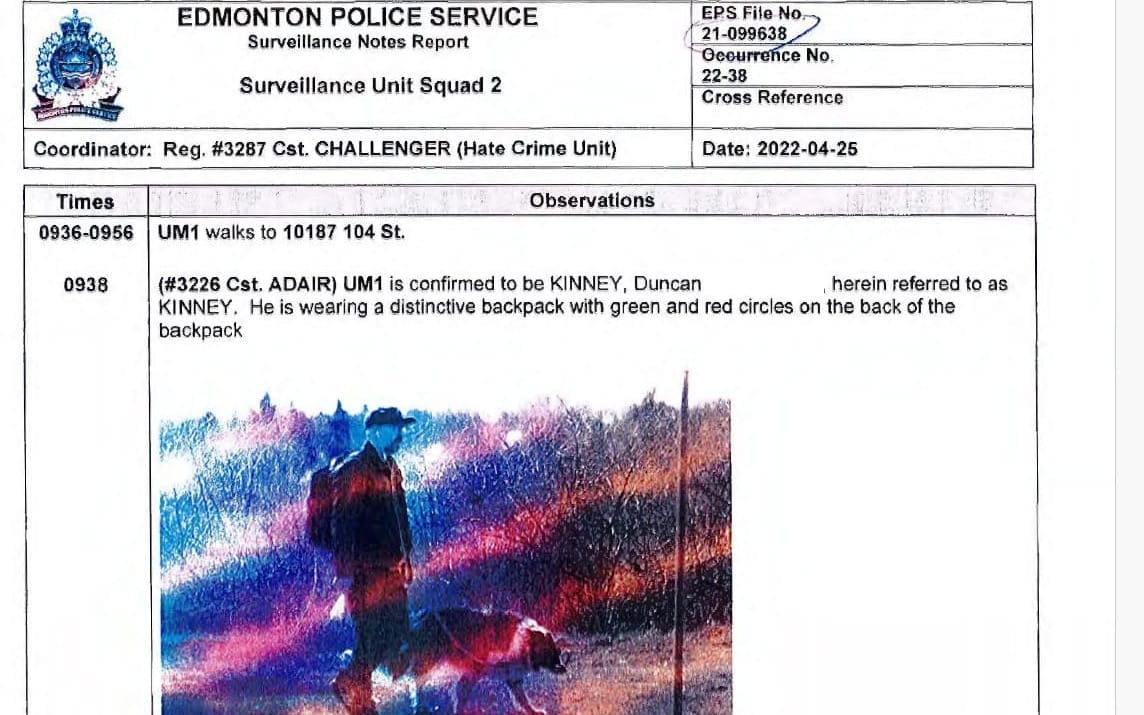
On October 25, 2022, Edmonton police charged a journalist with vandalizing a monument to the fascist Roman Shukhevych at the Ukrainian Youth Unity Complex. This act constituted someone writing "Actual Nazi" on the statue of the man who perpetuated a genocide of 100,000 Polish and Jewish people. Duncan Kinney, executive director and editor of The Progress Report, was charged with mischief under $5,000, this is also tied in with "mischief relating to war memorials." This charge carries a maximum 10-year prison sentence. His pre-trial has begun, with the full trial set to begin in April of 2025.
Yes, the Edmonton police are treating a monument to a fascist, Nazi-collaborator as a "war memorial."
Kinney has denied the charges and plead not guilty. The journalist has been a prominent critic of Edmonton police, and stated that the police have used these charges to target and intimidate him. Edmonton police have been very cagey with releasing documents, describing Kinney's accusations as "conspiracy theories and innuendo."
Kinney has found troubling information in documents from the Edmonton Police Service. They spent 181 hours surveilling Kinney and his family over the course of seven months. In a thread posted to both X and Bluesky, Kinney revealed documents where police took photos of his child riding a scooter, his partner and child out on a walk, Kinney walking his dog to the office and taking his child to the dentist.
The objective of this surveillance, according to their own reports, was "Lifestyle of Kinney."
One year before Edmonton police decided to follow and document Kinney's activities, a convicted killer ordered a hit on a La Presse journalist covering his then murder trial in Montreal. Frédérick Silva, then charged with three murders and one attempted murder, confessed to offering $100,000 to have investigative reporter Daniel Renaud killed. Renaud had been covering the trial for La Presse.
Outrage came swiftly. Political leaders from various provincial parties offered their condemnation and sympathy. Éric-Pierre Champagne, a journalist with La Presse and president of the Professional Federation of Journalists in Quebec, compared the threat to the attempted assassination of journalist Michel Auger in 2000. Champagne, quoted in the Canadian Press said, "We believed — perhaps wrongly — that it was over."
Renaud has refused to leave his profession, despite this threat on his life. Thankfully, it never materialized.
Among the many picks Donald Trump has announced to lead wings of his administration, Kash Patel has been selected to become director of the FBI. Patel has explicitly announced he would use his position to attack journalists. In 2023, he said "We’re going to come after the people in the media who lied about American citizens, who helped Joe Biden rig presidential elections...Whether it’s criminally or civilly, we’ll figure that out."
He and spokespeople for Trump have since downplayed those comments, without disavowing them. Trump has repeatedly joked about enjoying the thought of violence against journalists. This includes them being shot and raped in prison. He "joked" about the latter on at least two occasions.
Meanwhile, Israel has killed approximately 135 journalists and media workers in Gaza and Lebanon, according to the Committee to Protect Journalists. This is with the complete financial backing of the Biden administration.
It's difficult to trace, exactly, how all of these events are connected. Trump is not ordering $100,000 hits on journalists. A convicted killer for organized crime is not directing police to monitor a critical journalist. Edmonton police are not ordering airstrikes that kill journalists. But they all form a piece of the larger puzzle. Since the fascist tide kicked into overdrive with the first election of Trump in 2016, journalists have been increasingly targeted.
For a far less spectacular example, look no further than the endless hate and vitriol sent to journalists like Rachel Gilmore, Saba Eitizaz, Erica Ifill and countless others. It's no surprise that these people are those who report on things that antagonize the right-wing. Gilmore was harassed in public, which led to a flurry of hateful messages. Though the Canadian Association of Journalists released a statement on X supporting Gilmore, she pointed out she asked Ifill be included in the statement of support. She wasn't. Other people have pointed out that pleas from other racialized journalists have been ignored.
In the thread, the CAJ directs people to their emergency fund to support journalists and their toolkit for online harm and harassment. Though these are no doubt good tools, journalists need far more support than tweet threads, a toolkit and a fund one needs to apply for.
When journalists are facing attacks from a military, police, multiple politicians and craven right-wingers, it shows that the problem is systemic. Obviously, a solution needs to be systemic as well. Importantly, the first two mentions of journalists being targeted took place in 2022 and 2021, respectively. This has been a trend for at least a couple years. Our industry, which is no doubt aware of these events, should be sounding all alarms.
Attacks on journalism will only ramp up with the incoming Trump administration. That includes here in Canada, too. Pierre Poilievre, leader of the federal Conservatives, has likewise shown his disdain for journalists. Charitably, we can expect that he will in no way support reporters. Apathy is the best case scenario. That, alone, is a massive issue.
More than a year has passed since Israel ramped up its killing of journalists in Gaza. Our industry has been largely silent about this blatant attack on our industry. Journalists in this country have now revealed they have been targeted for their work holding power to account. In one case, a journalist's life was threatened to the tune of $100,000. In the other, a police department spent nearly 200 hours monitoring a journalist with barely an internal justification.
Now is the time to rally around the people in our industry.
Fund support structures. Pressure governments. Push for wider education on news processes. Change societal attitudes. Safety of people in our industry needs to be prioritized.
There is no sign this much needed change is coming. Instead, the current situation reveals an uncomfortable truth. At this point, we are not even remotely prepared for what's coming.
